SHARE
Digital Marketing Tools You’ll Love

Contents
Contents
Recently I have been diving into the world of digital marketing for the first time in years. I am not a digital marketer by trade. In my normal course of business, I consume marketing data and reports, but I don’t generate content (other than the occasional blog post) or reports myself. Lately, I have been doing a bit of both, and so I thought I would write down some of the digital marketing tools that I have found useful throughout the experience. Some of these you might know, and hopefully, some are new.
Technical SEO Tools
Technical SEO is the process of finding and fixing or optimizing website issues. Fixes may include broken backlinks, slow-loading pages, or unoptimized URL structures. While some tools like Screaming Frog might produce larger checklists than the two below, I find these tools most helpful on a regular basis: These are widely used by various web design companies.
1. SEMRush SEO Audit
SEMRush has an SEO Audit tool that will run for you every so often and notify you of any new issues by email. SEO Audit tracks issues with crawling a website, site performance, and broken links. It contains the ability to see historical reports and prioritize issues to fix. Although the Site Audit tool is fairly simple in its nature, I find it useful for getting a quick glimpse into a Semrush can be a valuable tool for your digital marketing strategy. This detailed Semrush review by Attrock can give you a good overview of its offerings and the website’s technical SEO health.
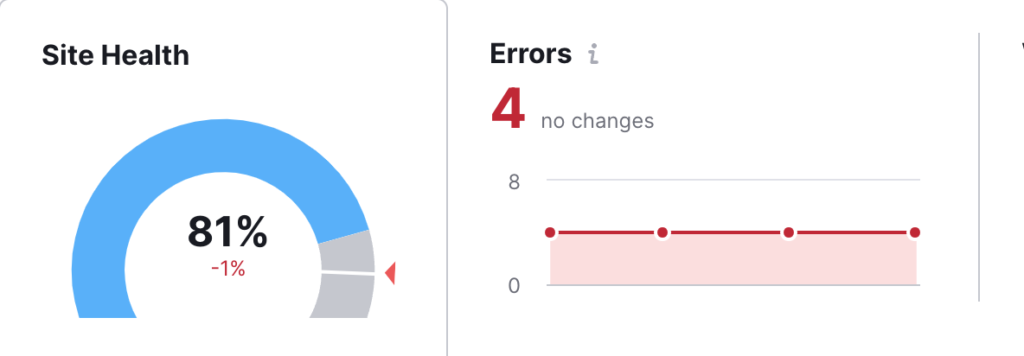
2. Ahrefs Site Audit
Similar to SEMRush, Ahrefs has a Site Audit tool that will crawl your website and product and report on any internal issues that it faces. The Ahrefs Site Audit tool is rather limited but is again a good high level overview when performing technical SEO for a website.
Okay, most technical audit tools are basically the same. They crawl your website, spit out a bunch of HTML or meta tag issues, and give you a health score that you can track over time. Still, very useful. Since you are likely to have an SEMRush or an Ahrefs subscription these shouldn’t break the bank hopefully.
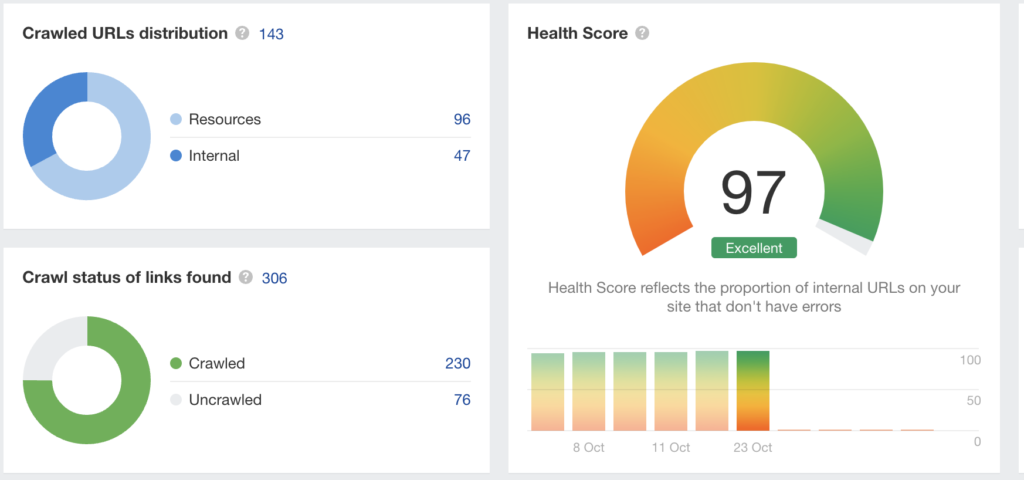
Backlink Generation & Exploration
1. Ahrefs Backlinks Tool
The Ahrefs Backlinks tool lets you analyze any domain to quickly find the most impactful backlinks. This can be great for analyzing your own domain, or for doing link prospecting. Remember to filter by “Do Follow” links to find potential backlinks that will boost your website’s credibility.
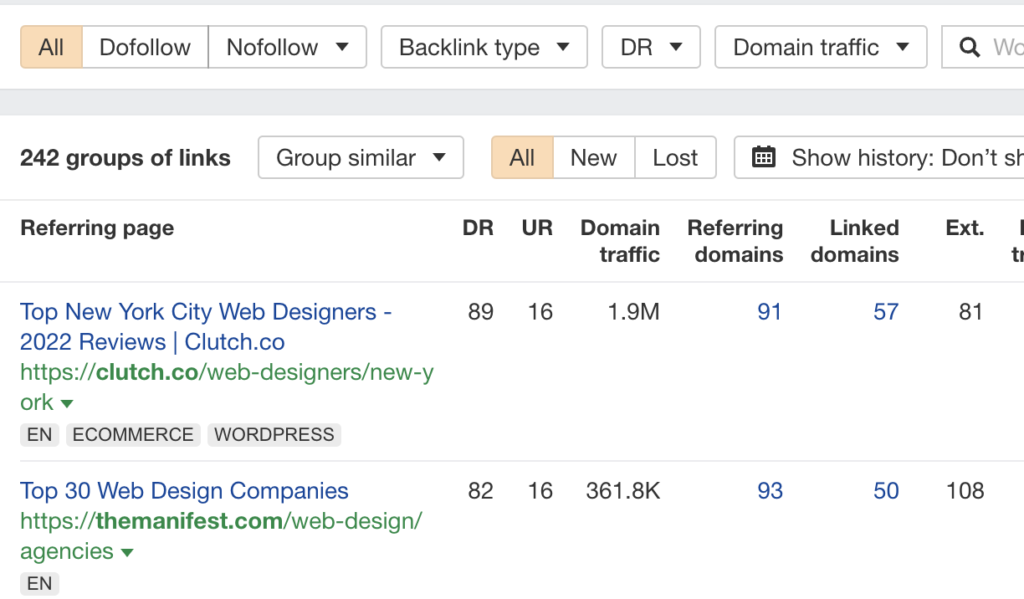
2. SEMRush Backlink Audit
The SEMRush Backlink Audit can be helpful in a number of ways. The toxicity score is helpful when you are link prospecting to make sure that you aren’t gathering low quality or spammy backlinks. Overall, the toxicity rank is a great way to find links that should be disavowed.

3. SEMRush Link Building Tool
Link prospecting is tough. Everyone knows the internet runs on high quality backlinks. But finding white hat opportunities to backlink to your own content can be tough. Guest posts and guest blog articles are time consuming and often fail. While it’s far from perfect, the Link Building Tool from SEMRush is a great start to finding articles and websites that your website could potentially be a good fit for. I recommend checking it out if you are looking to build out your backlink profile.
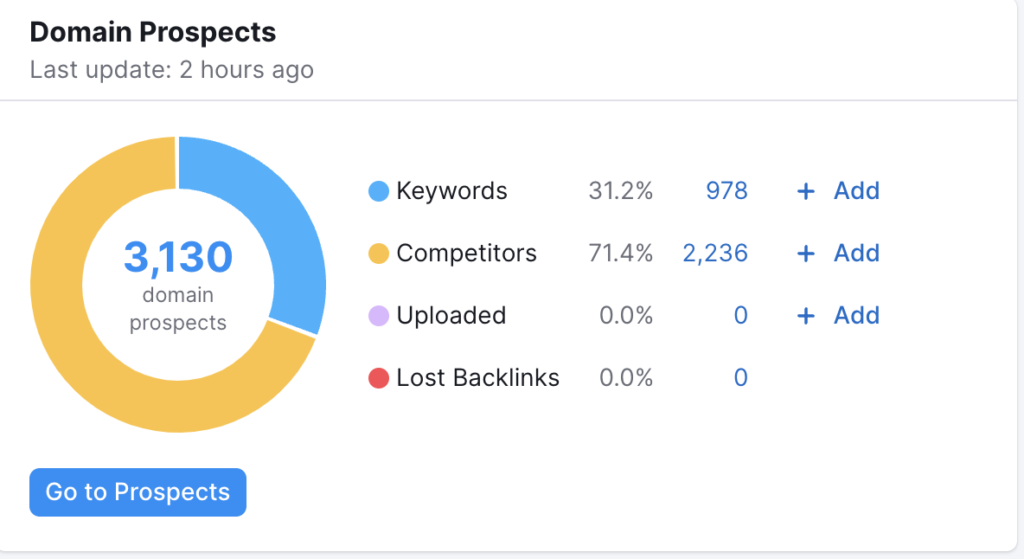
Keyword Generation & Research
Keyword Generation and Research is the process of discovering the best keywords or phrases for your website to generate. Finding relevant keywords that people search for is important when it comes to the creation of meaningful content. Many agency-level SEO tools can help with this keyword research.
1. Google Keyword Planner
Google Keyword Planner is great way to understand the traffic and keyword difficulty for any given keyword. You can quickly keywords related to a phrase, see the traffic or how popular they are, and see the keyword difficulty for each keyword. The name of the game is to go after keywords that have a low difficulty and as much traffic as possible.
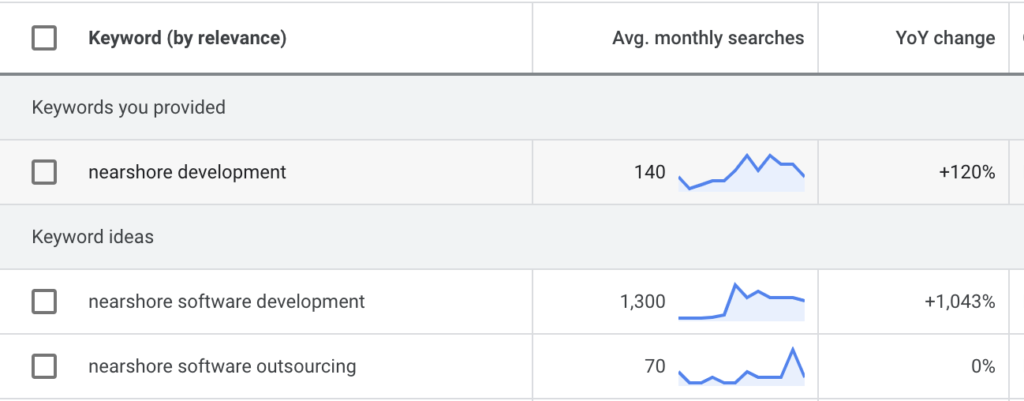
2. SEMRush Keyword Magic Tool
The SEMRush Keyword Magic Tool is another interesting way great way to understand the traffic and keyword difficulty for any given keyword. Given a keyword or phrase, it will tell you different keyword variants that you can pursue, along with the traffic and keyword difficulty for each of those keywords. The name of the game is to go after keywords that have a low difficulty and as much traffic as possible. The Keyword Magic Tool will give you a list of creative ideas that you can pursue.
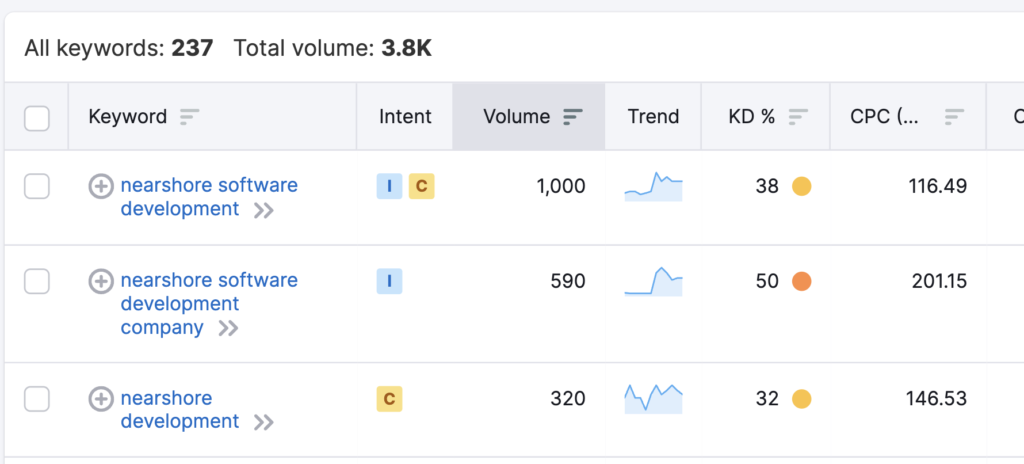
3. SEMRush Keyword Overview
If you need to dig deep into the analytics and information for a specific keyword, the SEMRush Keyword Overview gives you everything you need to know about a keyword. Keyword variations, related keywords traffic volume by country, and SERP analysis are just some of the features you will find in the Keyword Overview feature.
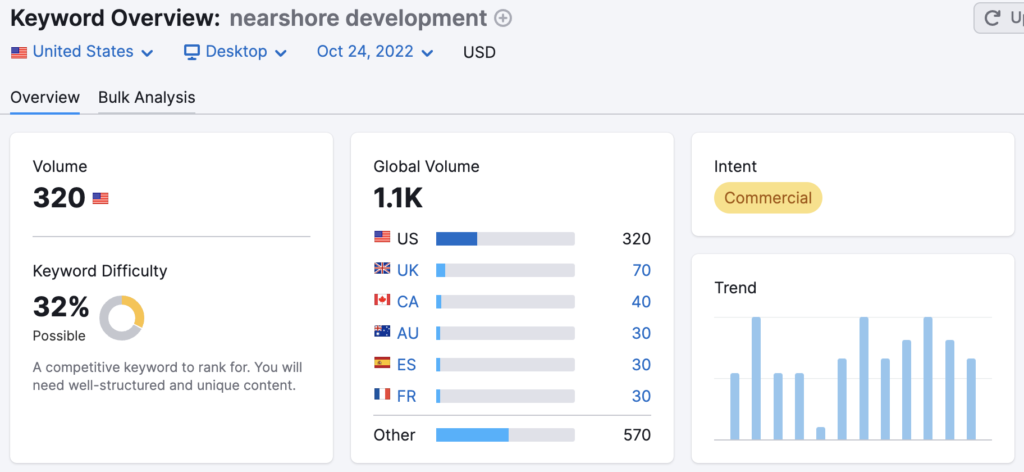
4. Ahrefs Rank Tracker
I love the Ahrefs Rank Tracker. It lets me add tons of keywords and track each of them within specific locations. So, for example, since Flatirons Development is located in Boulder, CO, I can track things like “software agency” and limit the search to Colorado. This is really useful for keeping track of all the keywords that you rank for. SEO is a time-consuming activity and it’s important to be keeping track of your progress as you go. Keeping track of keywords and measuring the way that they rank over time should be a strategy for all digital marketing teams.

5. Ahrefs Content Gap
The Ahrefs Content Gap is good for competitive analysis and content audits. You can enter the domains of your competitors and spit out a list of keywords that they rank for that you do not currently rank for. This is a useful exercise to revisit every so often, or to get inspiration when looking for content to write.
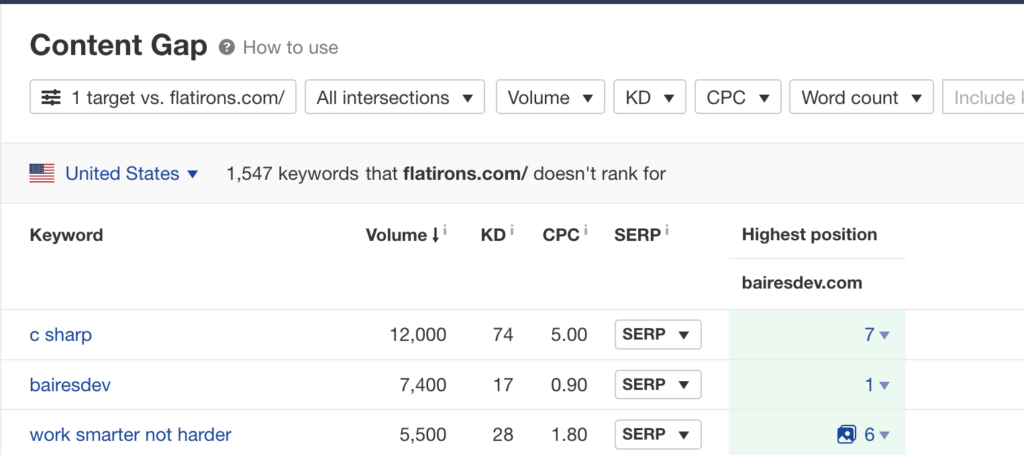
Content Writing
1. Frase AI
I am writing this post in Frase AI and I love it! Seriously, SEMRush and Ahrefs are great, and so are all the other tools listed here, but coming back to digital marketing and finding frase.io has been game-changing. My two favorite features within it are the Research tool and the Optimize tool. With the Research tool, I can easily see the top SERPs for a given topic, providing inspiration for your writing. If you flip over to the Optimize tool, you can see keywords you might want to inject into your content alongside the frequency they should be used. This is a very powerful tool for brainstorming content ideas as well as for content creation.
While I am not a huge AI writing person, I should mention that the AI tool in Frase has gotten my attention a few times. You can put in a topic that you are writing about and Frase will generate text for you automatically. I find this mostly useful for helping with content brainstorming as I inevitably would tweak any content produced by AI anyway. There are some more tools like SEOKart which leverage AI to suggest as well as generate Titles and Meta descriptions.
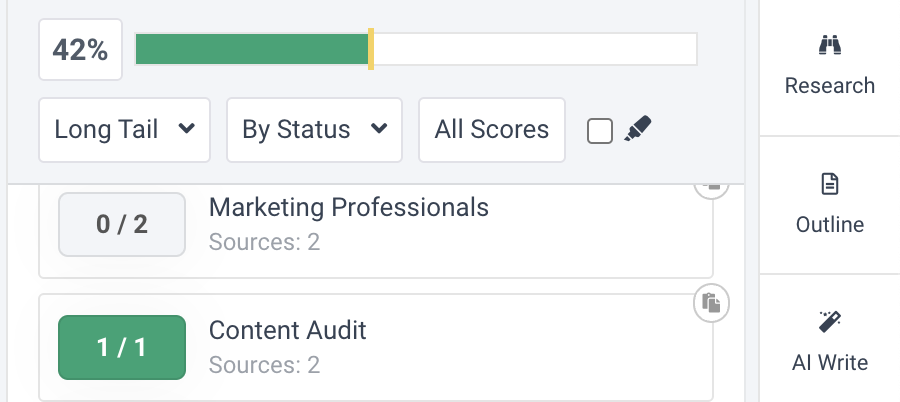
2. SurferSEO Content Editor
If I wasn’t busy loving Frase, I would spend more time in SurferSEO. It has a great content editor that ranks your content, allows you to outline content structures, and provides you with a list of keywords and their frequencies so you can optimize for them. From what I have heard, content marketers love SEMRush so I plan to dig deeper but wanted to leave it on this list for now.
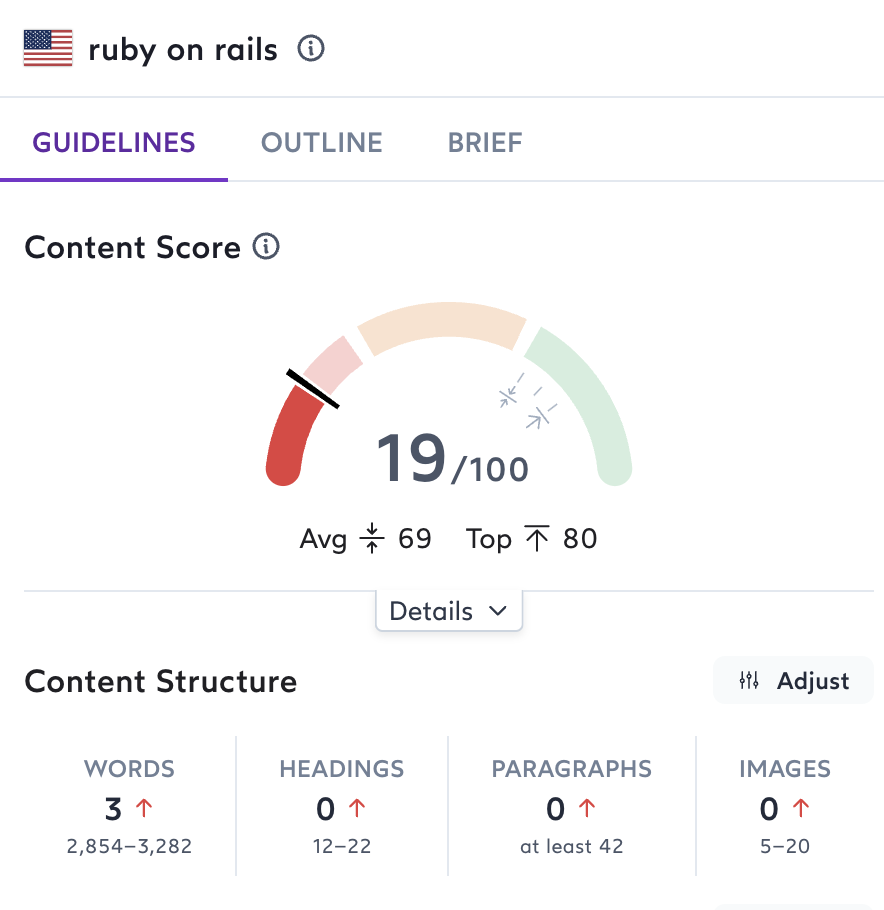
Marketing Analytics
1. Google Analytics
Yep. Can’t have a list of digital marketing tools without Google Analytics. Google Analytics is still a free and robust way to analyze your marketing website, traffic sources, marketing campaigns, conversion events, and more.

2. Google Tag Manager
Google Tag Manager (GTM) is great for marketers because it allows you to enter code snippets without bothering developers or waiting for releases. You can simply add a snippet, configure it to behave correctly, and publish the code snippet to your production application right from Google Tag Manager. Marketers tend to want a number of code snippets added to any given website, so it’s useful to put control in their hands.
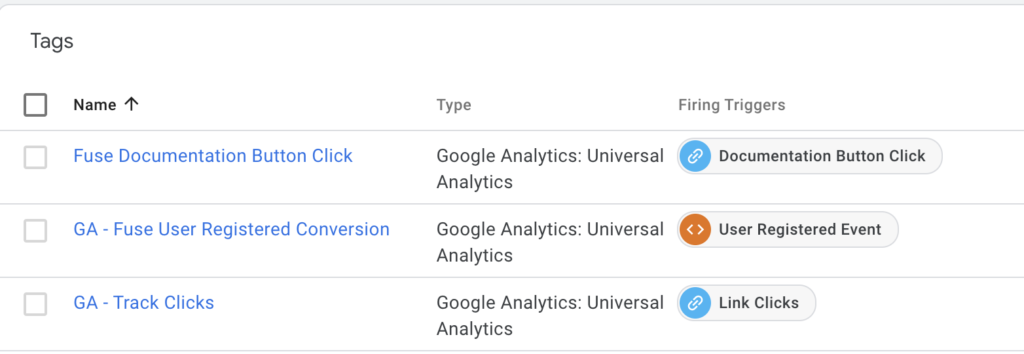
Advertising
Google Ads
Naturally, Google is still the main player in the paid marketing space. I find Google Ads a really great way to kick off a marketing campaign. It has curated keyword variants, negative keywords, and deep customization. I typically start a marketing campaign with Google Ads, learn what works, and then try to replicate or expand on those concepts on other marketing platforms if needed.
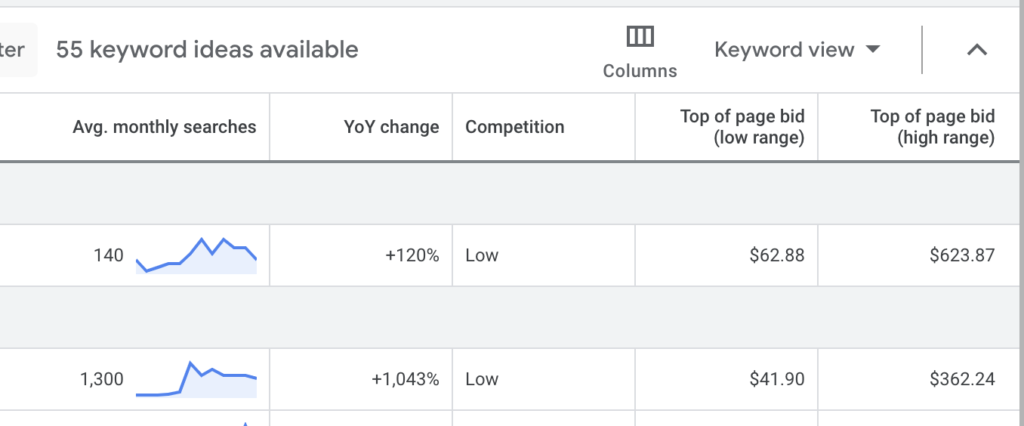
Magento 2 Google tag manager
Marketers tend to want a number of code snippets added to any given website, so it’s useful to put control in their hands. Due to its widespread popularity, regardless of the platform you use, you can find a suitable advanced version for your website, such as Magento 2 Google Tag Manager or WooCommerce Google Tag Manager.
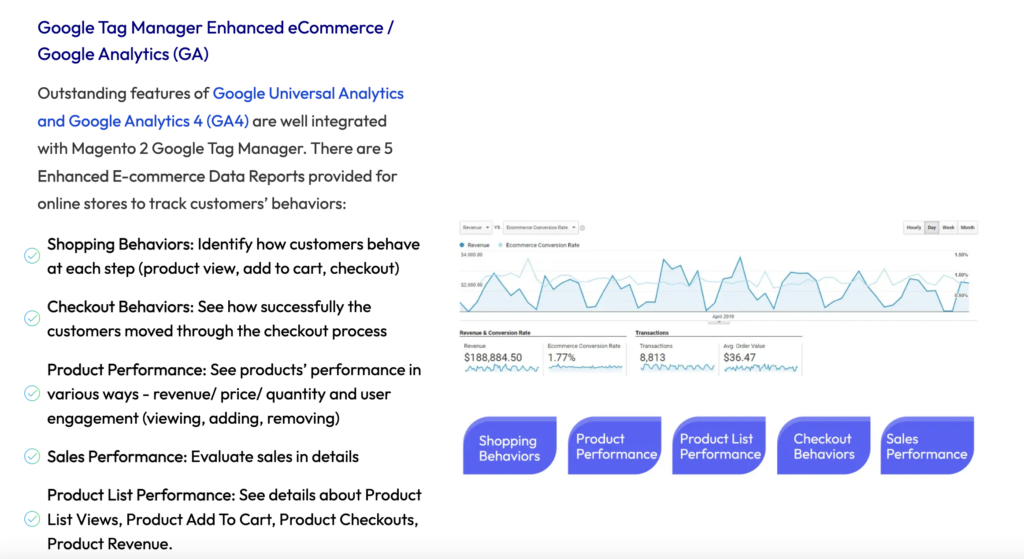
That’s it for now! Hopefully, I will revisit this post periodically to add in any tools that I feel are worth mentioning.

Enterprise Computing: Transforming Business Operations
Flatirons Development
Oct 09, 2025
Best Data Analytics Strategy for Business Growth
Flatirons Development
Aug 25, 2025
Team Lead vs Manager: Understanding the Key Differences
Flatirons Development
Aug 07, 2025
Exploring the Crucial Stages of a Startup Journey
Flatirons Development
Jul 16, 2025
Business Intelligence Benefits: Unlock Data-Driven Growth
Flatirons Development
Jul 08, 2025
Cloud Computing Strategy: Unlock Business Growth Potential
Flatirons Development
Jul 07, 2025